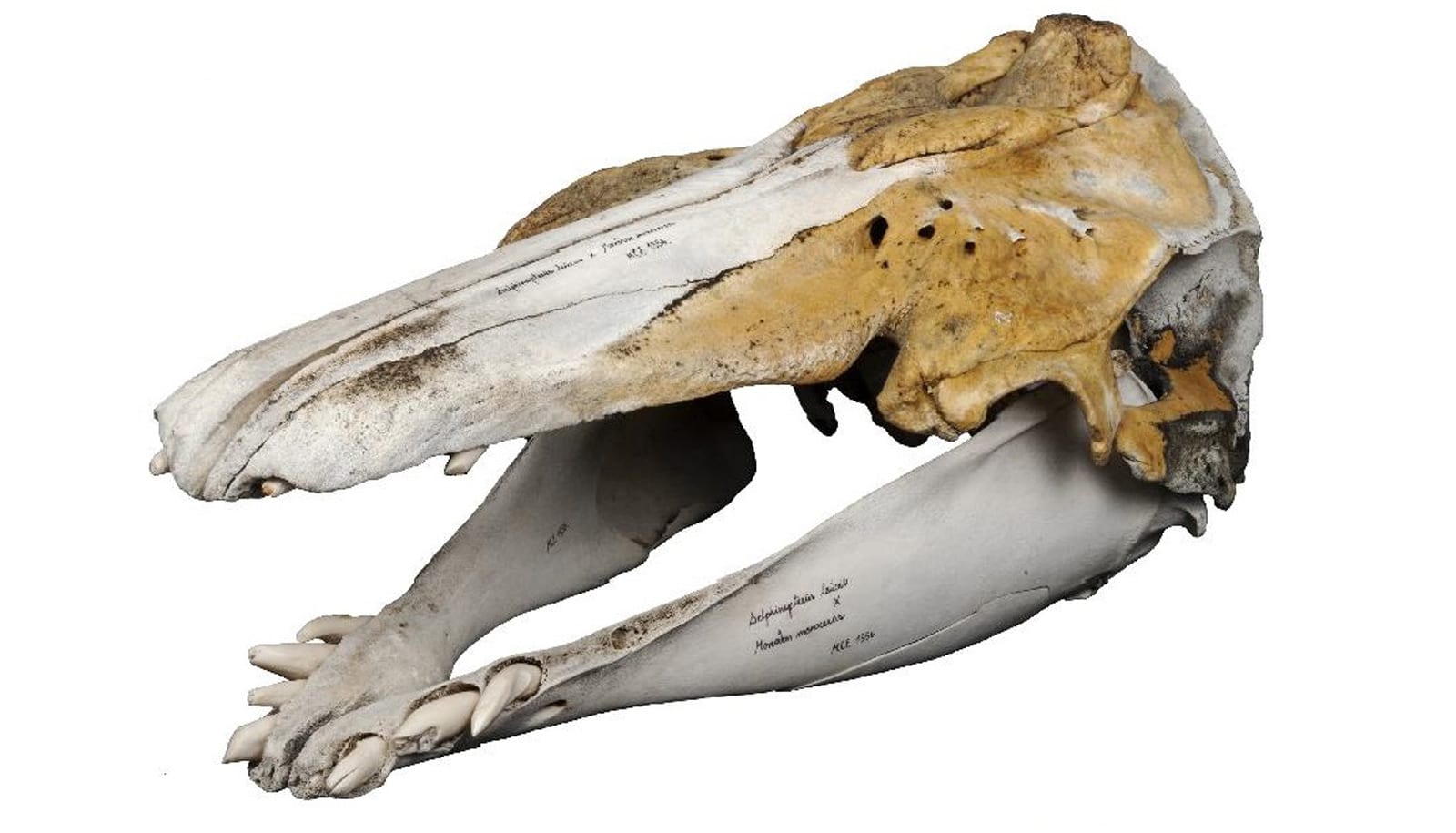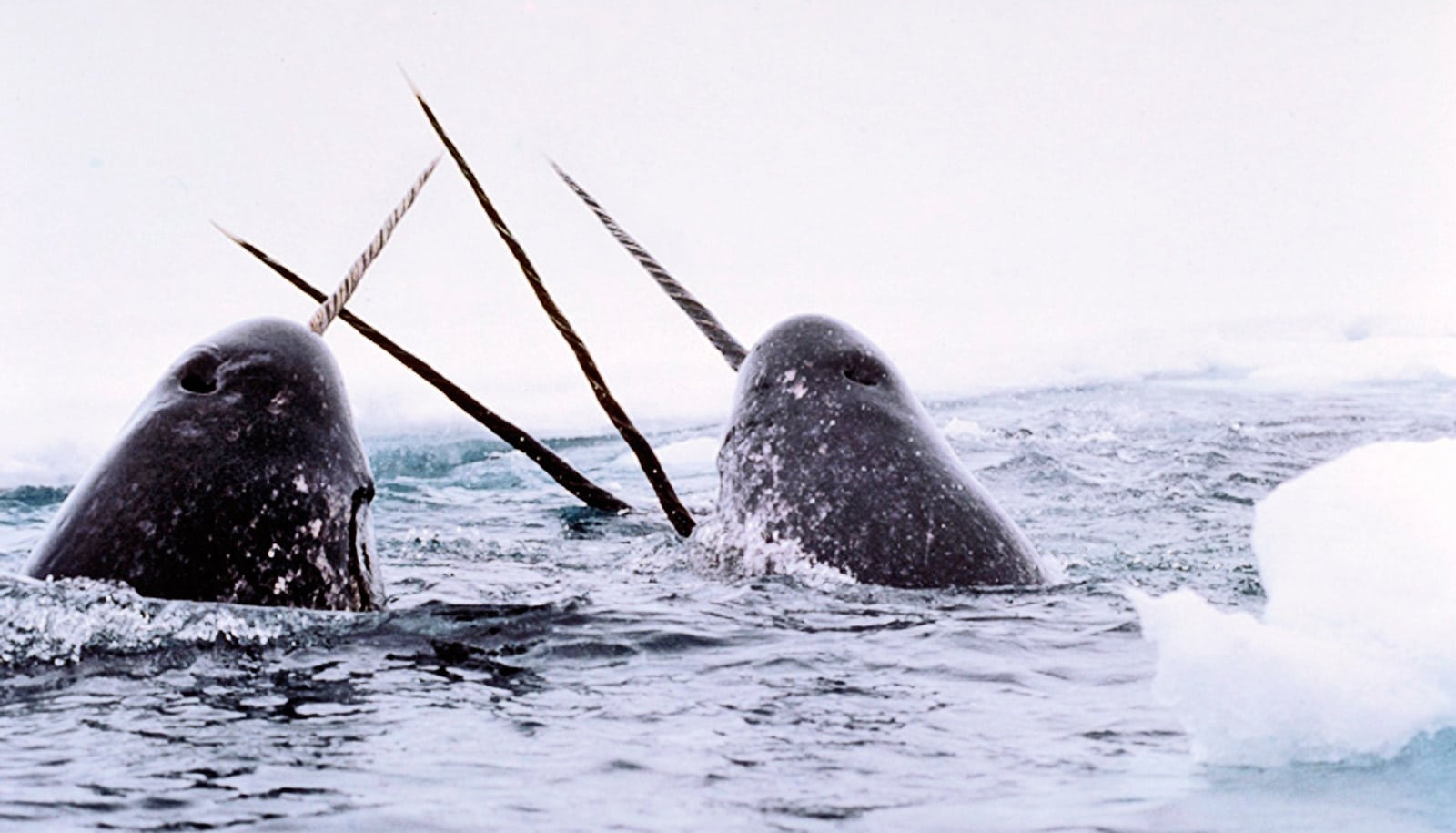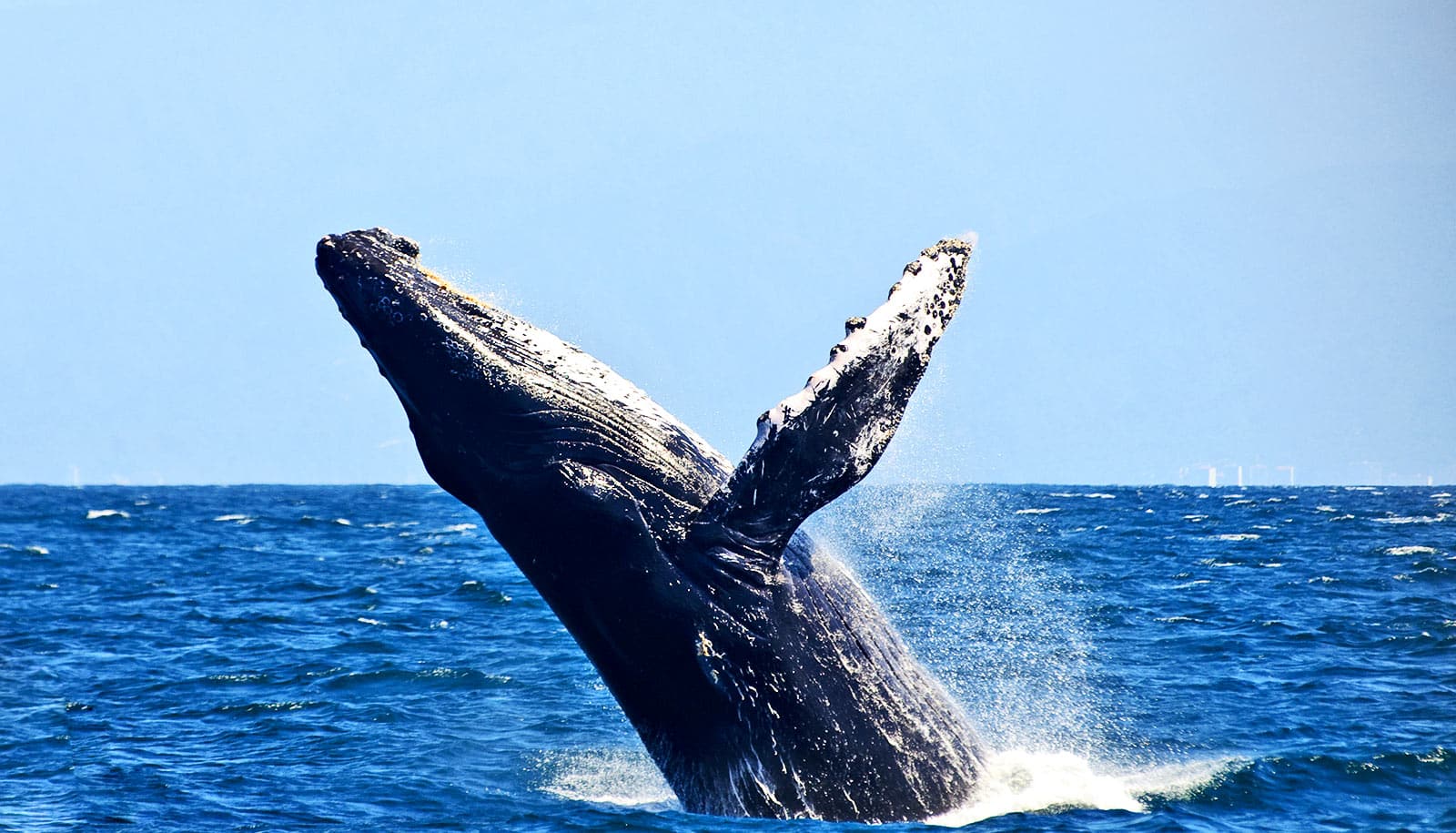Scientists can now account for an odd whale skull that was gathering dust in the Natural History Museum of Denmark. It’s from a narwhal-beluga hybrid.
Researchers compiled this first and only evidence that narwhals and beluga whales can breed successfully. Using DNA and stable isotope analysis, the scientists determined that the skull belonged to a male, first-generation hybrid between a female narwhal and male beluga.
By extracting DNA from the anomalous whale skull and comparing it to a genetic reference panel of narwhal and beluga, researchers established the whale’s genomic affiliation.
Narwhal-beluga hybrid
A Greenlandic hunter shot the whale in the 1980’s and was puzzled by its odd appearance. He therefore kept the skull and placed it on the roof of his toolshed.
“This whale has a bizarre set of teeth.”
Several years later, Professor Mads Peter Heide-Jørgensen of the Greenland Institute of Natural Resources visited the settlement and also immediately recognized the skull’s strange characteristics. He interviewed the hunter about the anomalous whale he had shot, and sent the skull to Copenhagen. Since then, it has been in the collections of the Zoological Museum, a part of the Natural History Museum of Denmark.
“As far as we know, this is the first and only evidence in the world that these two Arctic whale species can interbreed. Based on the intermediate shape of the skull and teeth, it was suggested that the specimen might be a narwhal-beluga hybrid, but this could not be confirmed. Now we provide the data that confirm that yes—it is indeed a hybrid,” says Eline Lorenzen, evolutionary biologist and curator at the University of Copenhagen’s Natural History Museum of Denmark.
Lorenzen led the study, which appears today in Scientific Reports.
A bottom-feeder with odd teeth
The hybrid’s skull was considerably larger than that of a typical narwhal or beluga, and the teeth were markedly different. Whereas narwhals have only one or rarely two long spiraling tusks, belugas have a set of uniform conical teeth that are aligned in straight rows. The hybrid skull has a set of long, spiraling, and pointed teeth, that are angled horizontally.
“This whale has a bizarre set of teeth. The isotope analysis allowed us to determine that the animal’s diet was entirely different than that of a narwhal or beluga—and it is possible that its teeth influenced its foraging strategy. Whereas the other two species fed in the water column, the hybrid was a bottom dweller,” according to Mikkel Skovrind, a PhD student at the Natural History Museum and first author of the paper.
Researchers analyzed reference stocks of narwhal and beluga for stable isotopes and compared these with isotope values from the hybrid skull. By measuring bone carbon and nitrogen concentrations, the researchers were able to discern whether the whale’s diet consisted of food from the water column or from the sea floor. The isotopes demonstrated that the hybrid whale’s dietary choices were very different than those of either narwhal or beluga.
Why did they mate?
Narwhals and belugas are the only toothed whales endemic to the Arctic region. While they are each other’s closest relatives and roughly equal in size, the two species differ in their morphology and behavior. The narwhal is known for its long, spiraled tusk and has a greyish-brown, mottled pigmentation, whereas belugas have two rows of uniform teeth, and adults are completely white. Narwhals are specialists when it comes to dietary choice, and belugas are generalists.
The researchers do not know what prompted the two species to mate, but it suggests a new phenomenon:
“We have analyzed the nuclear genomes of a narwhal and a beluga, but see no evidence of interbreeding for at least the past 1.25 million years of their evolutionary histories. So, interbreeding between the species appears to be either a very rare or a new occurrence. To my knowledge, it has not been observed or recorded before,” says Lorenzen.
“There are some true gems in the world’s natural history collections that can provide us with key insights into the evolution and diversity of life on Earth. It is incredible when material—such as this skull, which has been stored in our collection for decades—can be revisited with new methodologies to gain novel biological insights” says Lorenzen.
Skovrind adds: “It would be interesting to find out if similar hybrid whales have been spotted elsewhere.”
The research is a collaboration among the Natural History Museum of Denmark at the University of Copenhagen, the Greenland Institute of Natural Resources, and the anthropology department at Trent University.
Support for the research came from the Carlsberg Foundation, the Villum Fonden Young Investigator program, and the Canada Research Chair program.
Source: University of Copenhagen


